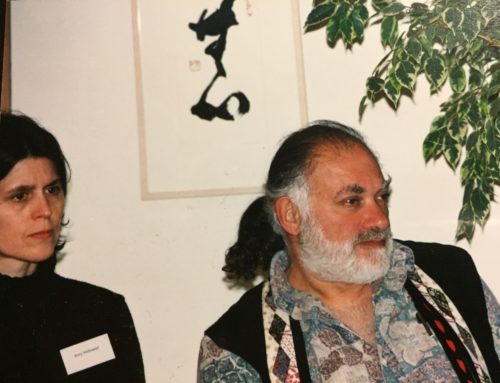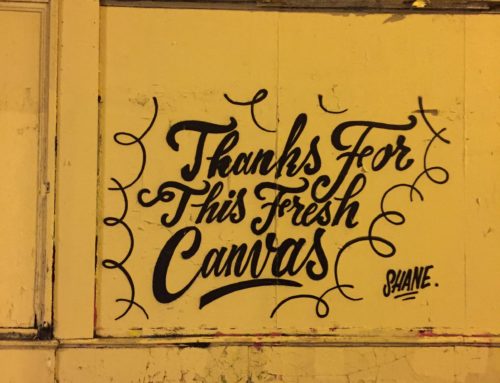Homeric link: The Lotus-Eaters/Les Lotophages
Scene: The bath /le bain
Hour: 10 a.m./10 heures
Organ: Genitals/Organes génitaux
Art: Botany, Chemistry/botanique, chimie
Symbol: Eucharist/eucharistie
Here again is Bloom, who, having left home, begins making his way about the city. He will return to No. 7 Eccles Street only much later, weary from his wanderings, deep in the starry night.
The Homeric parallel in this episode is simple, and the action and language are generally straightforward. Much of the episode is related to us through Bloom’s interior monologue.
In Homer’s Odyssey, the winds bring Odysseus and his men to the shores of the land of the Lotus-Eaters. Some of the men adventure inland and eat narcotic lotus flowers, a local delicacy offered by the natives. (It is believed that Homer’s Lotusland is modern-day Djerba.) Thus drugged, the men forget all notions of their voyage and the desire to return home. Odysseus, however, does not eat the plant and remains mindful. He manages to awaken his men from their stupor and lethargy – their delusion – and brings them back to the ships to continue the journey.
Likewise, Bloom remains alert amid the various “escapes” of Dublin’s deluded residents. Whereas episode 2 (Nestor), this episode’s parallel, demonstrated a clinging to the past, a remaining fixed in the “nightmare” of history, this episode presents the Dublin Lotus-Eaters as stuck – not fully present – because they are “asleep” and/or “drugged. “ They have opted for anesthesia rather than awareness. They are blind to their true nature and the world all around.
From the first sentence, Bloom, however, is “walking soberly” into the morning. He makes his way to the post office in hopes of finding a letter awaiting him, poste restante, under the name of Henry Flower. Amid the climate of general lethargy (Joyce riddles his prose with reflections of this atmosphere), Bloom’s mind is clear and nimble, noticing, reflecting, associating. Although tempted throughout to “sleep away” from the present – longing as ever for the dolce far niente of the East, “not doing a hand’s turn all day” – Bloom, like Odysseus, resists.
Along the way, Bloom stops at the post office, a church, the drugstore and, finally, the Turkish baths. Each presents temptations capable of waylaying the solitary traveler in his journey toward awakening. But Bloom is introspective throughout the episode, observing his own thoughts all the time, keenly noticing a thousand details about himself and others and his surroundings.
Several meetings with other Dubliners present potential “hazards” of distraction for him. He first meets M’Coy, whom he wants to “get rid” of quickly, and so he tells him he’s going “nowhere in particular.” Here is Bloom manifesting the no-man, going nowhere (for he is already here). M’Coy is an unwanted disruption, though: Bloom is eager to read the letter from Martha, his pen-pal/mistress, and he also spies a fine-looking woman across the road whom he cannot fully view because M’Coy is in the way. Anticipating a frequent tactic of M’Coy to borrow a suitcase for his wife’s supposed singing tour, Bloom announces Molly’s coming tour. “Who’s getting it up?” M’Coy asks, an unconscious double entendre, which turns Bloom’s thoughts immediately to Molly and Boylan, her manager and soon-to-be lover. “Not up yet. Queen was in her bedroom eating bread and. …Dark lady and fair man. Cat furry black ball. Torn strip of envelope.” When Bloom left home, Molly, lingering in bed, was not “up,” and neither, so to speak, was the lover Boylan — yet. The meeting with M’Coy is a non-meeting meeting, however, with Bloom’s awareness encountering M’Coy’s unawareness.
Bloom also meets Bantam Lyons, who asks to see his newspaper (another kind of dope). He is seeking a betting tip for the Ascot Gold Cup horse race to be run later that day. Bloom wants to get rid of Lyons, too, so tells him that he can keep the paper, saying he was going to “throw it away.” Deluded, seeing only from the perspective of his limited self, Lyons mistakes this for a tip. Bloom’s seemingly innocuous “throwaway” remark will have, we discover later, significant (karmic) consequences: Indeed, a horse called Throwaway will win the race, although Lyons did not take Bloom’s inadvertent “tip.”
Whereas the previous episode was concerned with inner organs, this episode deals with external ones – the skin, the penis, the face. The previous episode offered food and excrement, human and animal flesh joined, while this episode gives us humans and vegetables joined – plants, flowers, drugs, perfumes, incense. Where Calypso dealt with solids, the Lotus-Eaters features an array of liquids and a steady water motif. Calypso’s sensory diversions were stimulants, while the Lotus-Eaters is full of anesthetics and dope – wine, porter, nicotine, religion, drugs on the chemist’s shelves, gambling, warm bath water.
Bloom stops in the All Hallows church and witnesses communion. Here is Joyce’s symbol for the episode, the eucharist. Bloom watches as kneeling women take communion from the priest, who is speaking Latin, another kind of dope, which, Bloom notes, “Stupefies them first.” “Shut your eyes and open your mouth,” Bloom thinks. The ritual – religion in general – blinds and “lulls all pain,’’ “makes them feel all happy,” Bloom observes. He wonders whether the communion wafers are in water, and he thinks of corpus, corpse, body. By the end of the episode, it is clear that Bloom himself is the eucharist, afloat in the chalice of his bath in the church-like mosque of the Turkish bathhouse. “This is my body,” he thinks, words that ring Christ-like. A whole man, an awake man, he is ordinary man-divine, rather than a manlike divinity.
The episode’s arts, botany and chemistry, are present throughout: in the communion ritual, with flowers, candlelight and incense; in Bloom’s name and in his nom de plume, Henry Flower, and in his father’s name, Virag; at the chemist’s and in the lemony soap he buys; in the dried flower Martha pins to her letter.
There are references to tea and Bloom’s hat again, and reflections on the Buddha, Ceylon (a home to Buddhism), and the Far East (“Lovely spot it must be: the garden of the world…”) In his bath, Bloom does what Stephen could only think in episode 3: “Will you be as gods? Gaze in your omphalos.” His eyes are wide open to impermanence – “Heatwave. Won’t last. Always passing, the stream of life…” – and to his very human body, his “limp father of thousands, a languid floating flower.” This is a metaphor for Buddhism’s lotus flower, a blossom emerging from the muddy water of ordinary life, as well as for the genitals and for Bloom/Flower himself.
At the chemist’s, Bloom thinks of the various preparations, herbs, and ointments: “Remedy where you least expect it. Clever of nature.” But this could also be a reference to Bloom himself. Joyce said that Bloom was a good man, a man of heart, a man of unassuming goodness. Such a man resembles the Buddhist ideal of the bodhisattva. Throughout the day, Bloom is disregarded, overlooked, ignored, even mocked and disparaged. Apart from Stephen and Molly, Bloom’s fellow Dubliners fail to see him – and he does not seek to be seen – just as they fail to see their own true nature.
A motif that will recur in later episodes, “Plumtree’s Potted Meat,” is also introduced. It is in keeping with the pot and chalice motifs, and is associated with Molly (“a kind of meat pot,” William Tindall writes), fleshpots, etc., and also with Bloom, in his tub/chalice. The pot is a container, as the body is the form in which non-form manifests. The advertisement Bloom sees says a home is “incomplete” without Plumtree’s and an “abode of bliss” with it. This points again to the basic theme of becoming one, complete, here and now, in this world of forms through which ungraspable formlessness is made incarnate.
In addition to the other elements assigned to each episode, Joyce identified the technique employed in each. In this episode, the technique is “narcissism.” The inner monologue is prevalent, reflective of Bloom’s introspection, as he is “bent over the mirror of himself,” in the words of Stuart Gilbert, “lulled by the echo of his inner voice.” This is the contemplative’s “narcissism,” the path of looking “inward” that leads to self-knowledge. In Greek mythology, Narcissus is so enamored of his own image reflected in the water that he falls in – much to the chagrin of Echo – only to emerge as a flower. But another interpretation is that Narcissus sees there his own “true” face and thus the “gap” between his “true” and “false” selves disappears, the illusion of his limited self “dies” and the flower of his whole, true being blooms. A prerequisite of this non-separation, however, is self-reflection, or what is sometimes called narcissism.
— Amy Hollowell Sensei






just a few thougts, since i’ll be away now for a few days –
having a bit of fun with episode 5 at the moment. Jon wrote in his email about not liking the word "being", too static
he wrote "Nothing in our world "is" static, as everything we think we know changes and flows…someone several years ago told me that Buddha characterised people as Streams"
Joyce page 107 line 12 – "the stream of life". – so i’m not be-ing, i’m playing, i’m listening, i’m typing, i’m going verbing (?!), i’m streaming.
now i know what a mountain is – it’s a very slow stream.
sorted (i’m joking!!!!)
Noticed that i’m still using "I am" – is there an alternative?